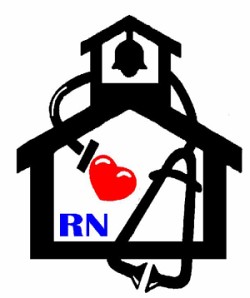Several days ago I read this on providing medical care at school.
I sent the link out to a number of significant political, governmental and policy people, saying
I thought this might be something for you to consider. I am motivated to send this on in part by my experience of volunteering in free medical and dental clinics in Virginia, both in rural areas like Wise and Grundy, and in more urban areas like Roanoke and NoVa. I am also motivated to share this because as a teacher in Greenbelt MD, perhaps a 20 minute drive from the Capitol, I encounter too many students with unaddressed health issues.
In rural areas if a child needs a basic medical visit it often means missing a day of school. That can be true for students in magnet programs in cities.
A child with dental problems cannot concentrate. A child with vision or hearing problems will not function as efficiently.
And a child on the road to obesity will not have as productive a life, and will incur far more downstream medical problems and costs.
Thus I urge you to read this piece and consider how it might point at things within your power to address.
Please keep reading.
This piece is part of a series at the Learning First Alliance on providing health care in schools (there are links for two earlier pieces in the series in this piece – both are worth reading).
Certainly Nurse-Practitioner Jennifer Danielson does a thorough job of explaining some of the issue and concerns.
My remarks in the email address part of why this piece caught my attention. But only part.
Health care should be a basic right for all Americans. It is critical for our young people.
Perhaps we cannot fully treat all conditions in school-based settings, any more than we could fully address all medical or dental issues at Wise.
Sometimes being able to diagnose or identify is a critical first step.
Thus if we can determine that a child has a hearing loss or vision problems, we can then make referrals for assistance, perhaps to a community clinic, perhaps to a doctor under a government subsidized program.
But first we have to identify that problem.
Further, attendance at many schools is contingent upon having inoculations up to date. That can be a problem for families where the parents do not understand English and the appropriate materials cannot be provided in the language they do understand – after all, some of our immigrant parents are illiterate in any language. Even if they know, they may not understand how to go about getting the necessary inoculations. Having a process where their children can receive those at a school based site may well after one considers administrative costs of identifying and eliminating those insufficiently immunized from school cost at most marginally more than what we are currently doing.
We have a crisis in education. We have a crisis in nutrition (and here I want to comment the administration for moving aggressively on this, from the efforts of Michelle Obama to those in the Department of Agriculture – which runs the school lunch program – under Tom Vilsack). We have a crisis in health care – and that includes vision, hearing, mental health, oral health.
We have increasing numbers of children in homes where both parents work for whom simply getting them in for checkups and prophylaxis is exceedingly difficult, or represents a loss of critical income. Or if they can, a simple teeth cleaning means missing an entire day of school because of transportation issues.
And think of the kinds of impact of things like swine flu epidemics – or even normal flu epidemics. Might not we consider the public health benefits of being able to have school-based inoculation programs?
There are many policies in the United States that we all too often address in policy silos. I have noted that we treat aspects of health in separate silos. That is bad enough.
I know a child with untreated dental problems will have trouble learning.
I have seen children struggle with vision or with hearing – why cannot we have regular screenings at least of these necessary abilities for school at the school?
School-based health delivery will not solve all of our problems. But it might lessen the severity of a number.
We need to rethink many things. If we are going to rethink education and what we need to do to have our children succeed, I wonder which is more important – lifting the caps on charters and tying teacher pay to student test scores and raising the standards on test scores, all policies of the current administration; or perhaps starting with making sure our children have had all health and nutrition issues that can interfere with learning being addressed? Which I wonder might be a more effective expenditure of federal funds?
I keep returning to dental. It is related to nutrition, to overall health, to pain, to so much more. Perhaps it is because of all I see when I volunteer in dental triage. I think this is crucial. How hard would it be to do basic dental examinations, teach children the right way to brush, how to floss, and then if there are possible further issues to refer to perhaps a roving dental clinic with portable xrays if further work might be needed? This could address some of the triage issues to then enable free or reduced fee clinic to operate more efficiently.
None of these ideas are new. All would benefit our children.
I don’t claim to have the answers. I can point at some possible answers, like the interview with Jennifer Danielson.
So that is why I have written and posted this diary.
What think you?
Peace.



 Sign up for the Blue Virginia breaking news newsletter
Sign up for the Blue Virginia breaking news newsletter

![“Attorney General [Jason Miyares] is a coward who refuses to defend our state’s laws [against so-called ‘conversion therapy’] that demonstrably prevent suicide”; “Glenn Youngkin is simply despicable”](https://bluevirginia.us/wp-content/uploads/2025/07/youngkindespicable-238x178.jpg)






![“Attorney General [Jason Miyares] is a coward who refuses to defend our state’s laws [against so-called ‘conversion therapy’] that demonstrably prevent suicide”; “Glenn Youngkin is simply despicable”](https://bluevirginia.us/wp-content/uploads/2025/07/youngkindespicable-100x75.jpg)